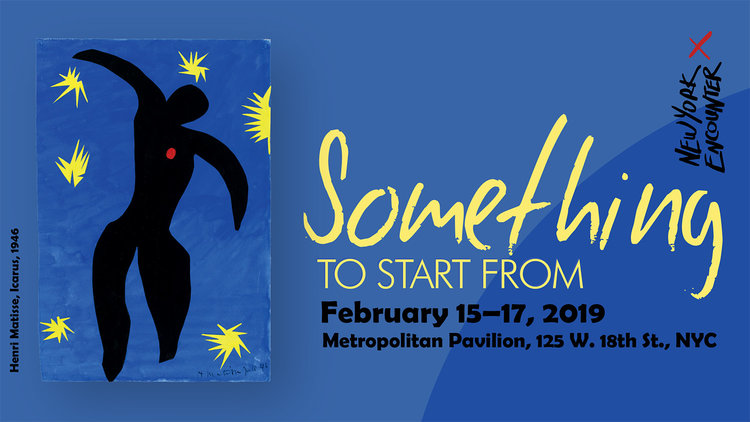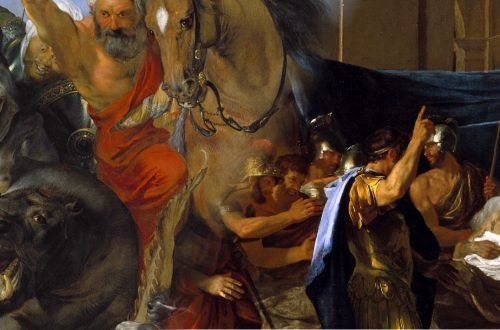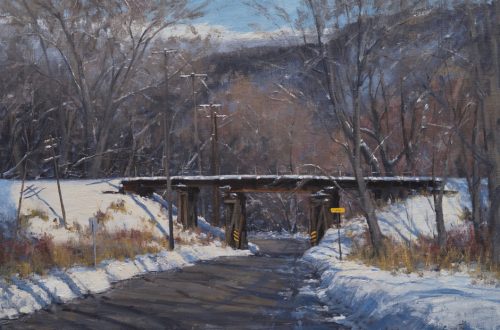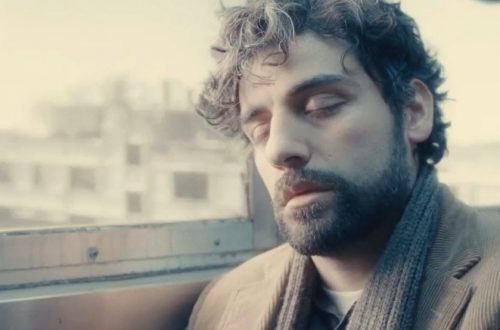Are you hungry for an extended engagement with reality, for something that will awaken you more fully to the human condition? Consider joining us at the New York Encounter, February 15th through the 17th.
Speakers and presenters include:
- The New York Times editorialist, David Brooks
- The President of the Fraternity of Communion and Liberation, Fr. Julián Carrón
- McCormick Professor of Jurisprudence at Princeton University, Robert George
- Gilbert T. Rowe Professor Emeritus of Divinity and Law at Duke Divinity School, Stanley Hauerwas
- Notable American poet, Paul Mariani
- The Archbishop of Boston, Seán Cardinal Patrick O’Malley
… and many more!
But if you think you know exactly what such a conference would be like, think again!
The Encounter is not just a platform for lectures and discussion but includes art, music, poetry and other events. Topics and presentations range from rock and roll as a quest for the Infinite, to Andy Warhol’s realism, to a panel discussion on “Education at the End of an Epoch” (with Stanley Hauerwas; Archbishop Christophe Pierre, the Apostolic Nuncio to the United States; and editor-in-chief of Veritas Journal, Jon Balsbaugh).
All events are free and open to the public, with no registration required. For more information, go to www.newyorkencounter.org
2019 Theme: Something to Start From
We are at the end of an epoch and we feel the need to rediscover our identity and somehow start again. But, having abandoned traditions, challenged norms, and rejected authorities, we are left with nothing but ourselves to make sense of it all. With no blueprint, the present is full of unease and the future appears enigmatic.
We are uncertain of the meaning of our lives, and so often feel confused, alone and isolated. Our collective days are filled by the pressures of success and conformity, along with the fear of being left behind. Failure seems irredeemable, mercy impossible. So, we often look for scapegoats or ways to escape. But tribal belonging or artificial realities are poor substitutes for the certainties we have lost.
At the same time, this very unease reveals something in us. Something that feels the lack, aches for meaning, and recognizes the truth, like a tuning fork vibrating for its single, unmistakable note. Something that makes us long to be looked at, listened to, understood, forgiven, valued just because we exist. Something that perceives a promise even within these challenging times and urges us to respond, to say “Here I am!”, to seek justice, to build anew. An innermost, irreducible, decisive core marked by a stubborn expectation.






2 Comments
Tom Loughran
End of an epoch? MacIntyre offered an analysis of our fractured past in his Short History of Ethics (1965); punctuated it with his Disquieting Suggestion in After Virtue (1980), and located the fracture in the thirteenth century in his Gifford Lectures (Three Rival Versions of Moral Inquiry, 1989.) So which epoch, exactly, are we only now seeing come to a close? Maybe we’re seeing (with Deneen) the End of Liberalism? But in a community building craft and culture, extended over time in a tradition, no one confuses license for liberty. Our problem is not that we have only ourselves to make sense of it all…there’s plenty of sense around. What there isn’t is the courage to put in common what we have in common and start building, and to spend our lives doing that. What I admire about Trinity Schools is that a craft of inviting students into a community of learners is being built by dedicated professionals. Many of these are bound together by covenant (in People of Praise, based not only on the faith of “stubborn expectation” but in love), with others seeing enough there to spend a lifetime collaborating with them at Trinity. We need more of that…more attempts to build community. Then, slowly, to let what wisdom can be found in the sense-makers be kneaded into social life and there prove its worth. So thank you for this new (long overdue) public platform for reflection. But it needs to lead to more than talk, or we’ll find ourselves isolated and resourceless in the face of an end of an epoc, a long way down the road.
Pingback: